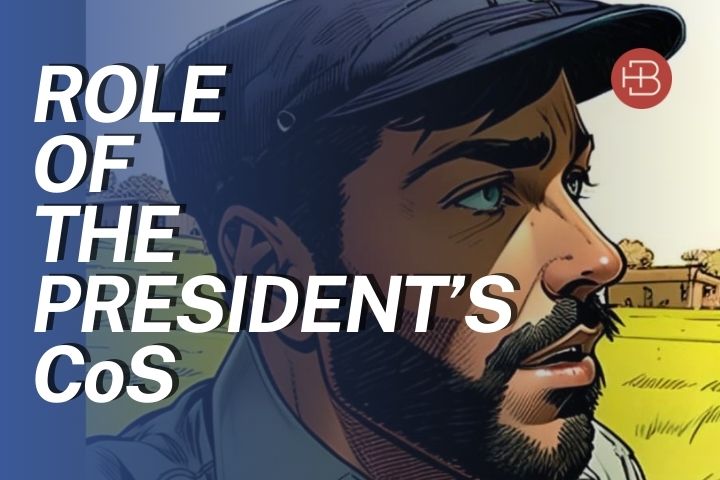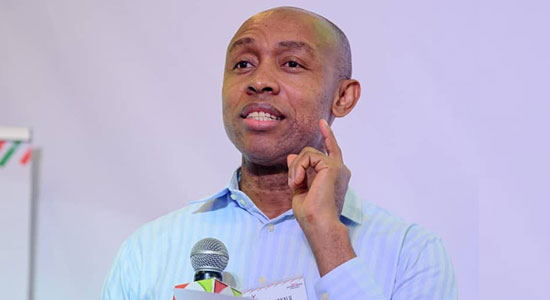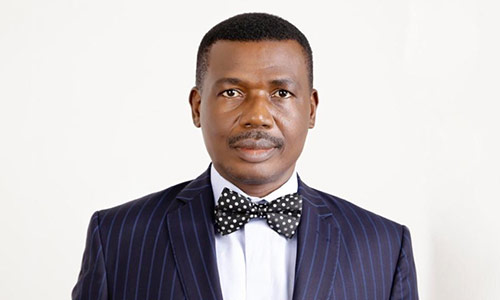The Unsung Hero: The Imperative Role of the President’s Chief of Staff in Nigeria’s Democracy

By Henry Balogun
In the intricate web of a nation’s governance, the role of a Chief of Staff to the President stands as a linchpin, connecting vision with execution, and ensuring that the wheels of democracy turn smoothly. While this position may often be underestimated or misconceived, its significance cannot be overstated, especially in a diverse democracy like Nigeria. In this article, I shall delve into why having a Chief of Staff is imperative for a President, the qualities required, the misconceptions surrounding the role, and the importance of safeguarding this critical office.
The Role of the Chief of Staff in a Democracy
In a democracy, the Chief of Staff’s authority is always subject to the President’s will and the checks and balances of the democratic system. His role is not to dictate policy but to facilitate its execution. The Chief of Staff must strike a delicate balance between authority and restraint, ensuring that the President’s agenda aligns with democratic values.
Chief Operating Officer of the Office of The President
At its core, the Chief of Staff is the COO of the President’s office. This means coordinating, strategizing, and implementing the President’s vision. He acts as the bridge between the President and the various arms of government, ensuring seamless communication and execution of policies. Oftentimes, the Chief of Staff is responsible for overseeing the development of the President’s policy agenda.
Managing the President’s Team
The Chief of Staff is responsible for overseeing the President’s team, including advisors, aides, and support staff. This involves hiring, evaluating performance, and ensuring that the team operates cohesively. He must create a productive work environment and motivate the team to achieve the President’s goals.
Liaison with the Executive Council
The Chief of Staff serves as a crucial link between the President and the members of the Cabinet, who are responsible for various government ministries, departments and agencies. He helps coordinate Federal Executive Council/Cabinet meetings, provide briefing materials, and ensure that the President is well-informed about the activities of the Cabinet. This role fosters effective decision-making and policy implementation.
Chief Broker with the Legislature
The Chief of Staff often plays a crucial role in maintaining a positive relationship between the executive branch, where the President resides, and the legislative branch. He acts as a liaison, facilitating communication and negotiations between the President’s office and lawmakers. This involves strategizing on legislative priorities, coordinating meetings, and ensuring that the President’s agenda aligns with the legislative process.
Head Hunter and Chief Advisor
One of the key functions of a Chief of Staff is assembling a team of capable advisors and aides. He must possess impeccable judgment in choosing individuals who can help steer the ship of state in the right direction. Simultaneously, he offers counsel to the President on critical matters, drawing from his wealth of experience.
Gatekeeper and Speechwriter
The Chief of Staff serves as a gatekeeper, managing access to the President and filtering information to ensure that the President’s time is efficiently utilized. He often contributes to crafting the President’s speeches, ensuring that the message aligns with the administration’s goals and objectives.
Administrator and Crisis Manager – Managing The Unexpected
The day-to-day operations of the President’s office fall under the purview of the Chief of Staff. He is responsible for maintaining order, managing schedules, and addressing unforeseen crises promptly and effectively.
Talking the President Out of a Bad Idea
One of the less visible but highly critical roles of the Chief of Staff is to provide a candid and trusted perspective to the President. He must be willing to challenge the President’s decisions when necessary, diplomatically steering them away from potentially harmful or ill-advised ideas. This requires a delicate balance of loyalty to the President’s vision and the courage to offer alternative viewpoints.
Managing and Reporting Bad News:
While every administration experiences challenges and setbacks, it falls on the Chief of Staff to manage and report bad news to the President. This involves presenting difficult information in a clear and constructive manner, offering potential solutions, and maintaining the President’s confidence. It is a challenging but essential aspect of the role, as the President relies on accurate information to make informed decisions.
Liaison With the First Lady
In Nigeria, the First Lady holds a unique position that can influence public opinion and social initiatives. The Chief of Staff may serve as a point of contact between the First Lady and the President’s office. They help coordinate the First Lady’s activities with the President’s agenda, ensuring a harmonious working relationship between the two offices.
These roles highlight the multifaceted responsibilities of a Chief of Staff, emphasizing his role as a trusted advisor, strategist, and manager within the President’s office. The ability to navigate complex relationships, manage crises, and provide sound guidance contributes significantly to the success of any administration.
Qualities, Competencies, and Capabilities of The Chief of Staff
To excel in this role, a Chief of Staff must possess qualities such as integrity, discretion, and loyalty to the President’s vision. He should have a deep understanding of governance, effective communication skills, and the ability to manage a diverse team of advisors and aides.
Protecting the Chief of Staff
Unfortunately, in the often contentious world of politics, a hardworking Chief of Staff may become the target of opposition politicians, the media, and those resistant to change. It is crucial for a President to protect their Chief of Staff from undue pressure, recognizing that their effectiveness is vital for the administration’s success.
Hon. Femi Gbajabiamila: A Dynamic Chief of Staff
Hon. Femi Gbajabiamila, a distinguished lawyer and former Speaker of the House of Representatives, embodies the qualities of an exceptional Chief of Staff. Since his appointment, he has brought dynamic changes to the Aso Villa, working tirelessly to ensure that the Bola Tinubu presidential office operates at its best. His commitment and dedication underscore the importance of this pivotal role in the success of any administration.
In a democracy like Nigeria, where the President’s office is a hub of power, influence, and decision-making, a Chief of Staff plays a pivotal role. However, misconceptions about their powers and misplaced expectations are not uncommon. Some perceive them as wielding unchecked authority, while others expect them to be a mere figurehead.
In closing, safeguarding the office of the Chief of Staff is not a matter of personal preference but a necessity for the effective functioning of Nigeria’s democracy. The Chief of Staff is the unsung hero behind the scenes, turning the President’s vision into reality. To ensure a prosperous and harmonious nation, we must recognize, appreciate, and protect this essential role.
Henry Balogun (HB) Lawyer and Media Entrepreneur is the Publisher of the HB Report and The Lawyer Daily, as well as the convener of Friends of PBAT. He served as Chief of Staff, Office of the Deputy Governor of Lagos State, 2003-2007.



